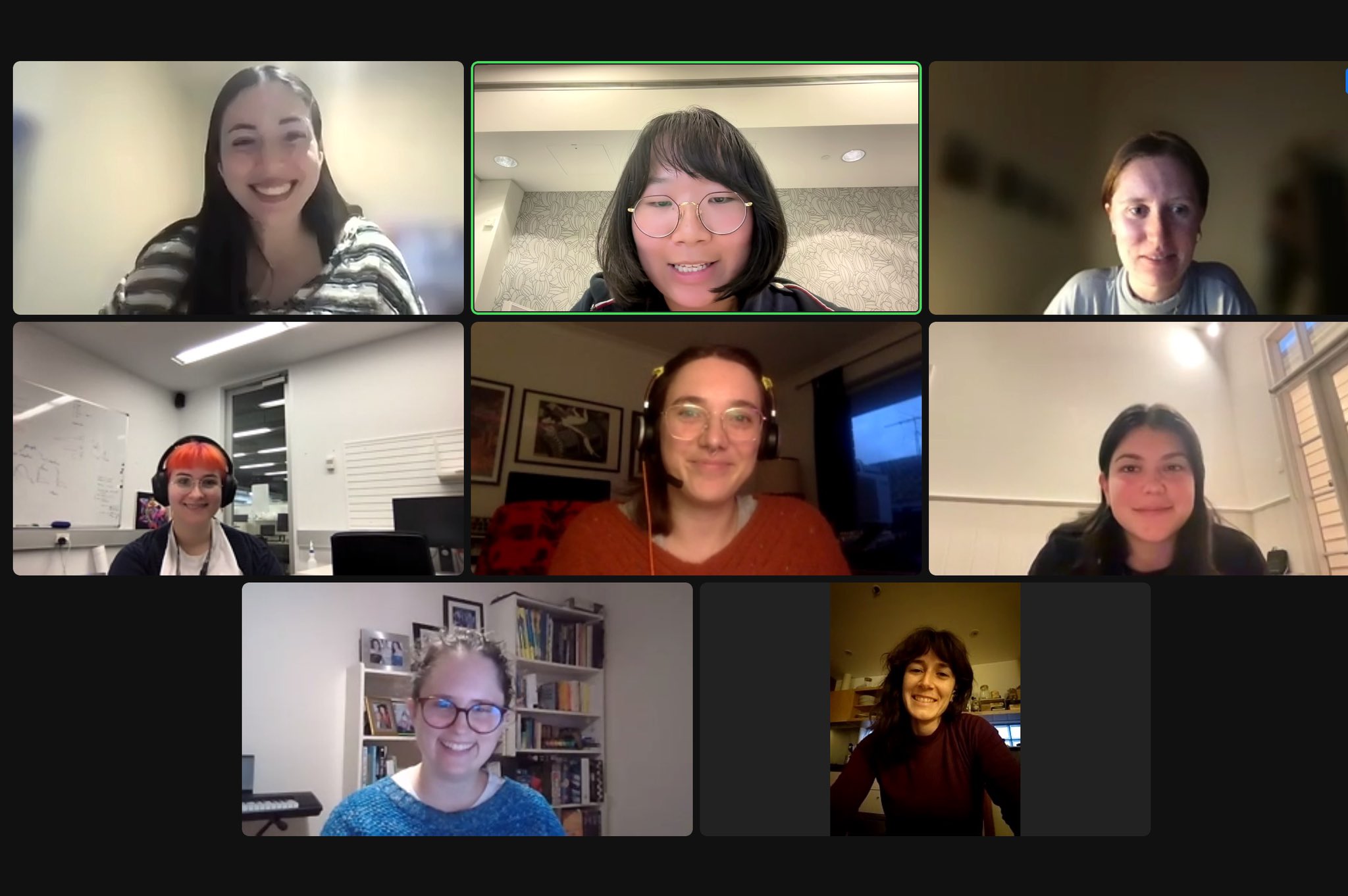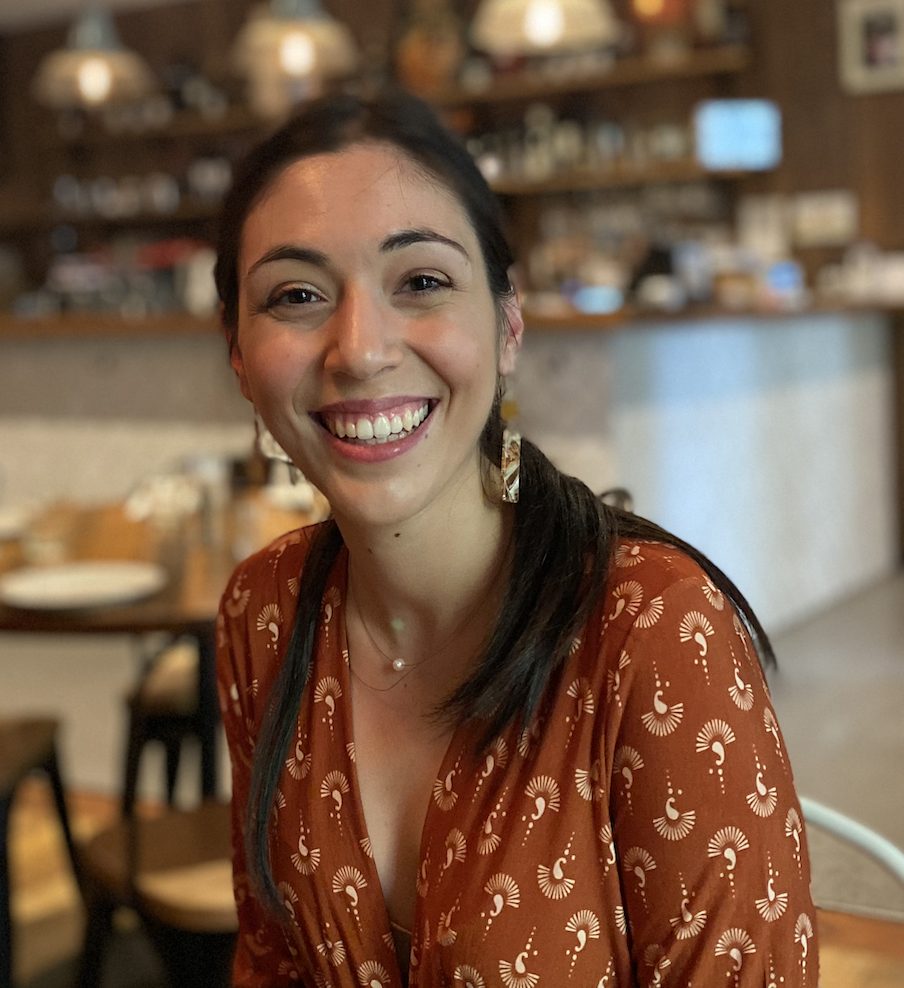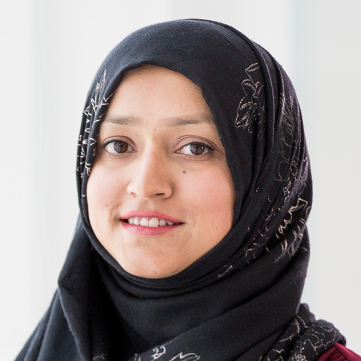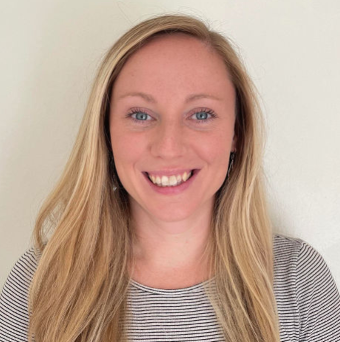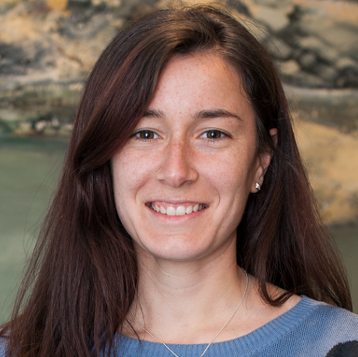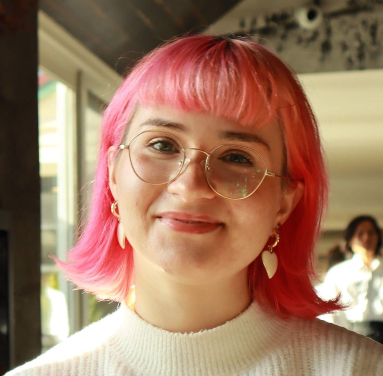%%{init: { 'logLevel': 'debug', 'theme': 'default', 'themeVariables': {
'fontFamily': 'Helvetica, Arial, sans-serif',
'cScale0': '#88398A', 'cScale1': '#e1b9e2','cScale2': '#88398A','cScale3': '#e1b9e2',
'cScaleLabel0': '#ffffff', 'cScaleLabel1': '#000000', 'cScaleLabel2': '#ffffff', 'cScaleLabel3': '#000000'
} } }%%
timeline
title History of R-Ladies Melbourne Inc.
section Our Foundation
2012 : R-Ladies founded in San Francisco by Gabriela de Queiroz 💜
2016 : 18th October - R-Ladies Melbourne Launched 🚀
section Our Meetups
2017 : R Notebooks and Interactive Graphs
: Git and GitHub Workshop
: Twitter Workshop
: Web Scraping and Sports Analytics
: Build Neural Network with R
: mixOmics Combine Large Scale Datasets
: Introduction to R Workshop
: Random Forest, Climate Change and Food Production
: One Year of R-Ladies Melbourne
: Introduction to R-Shiny
: Christmas Party
2018 : Semiparametric and non-parametric models in R
: From zero to science hero in 1 week
: How R you? R-Ladies Melbourne second anniversary
: R as a tool for complex systems modelling
: Getting down and up with blogging with R!
: Follow me! Introduction so social media analysis in R
: Introduction to R
: Everything you need to know to create your R Package
: More than words - Text Analysis in R
: Parallel Programming in R
: Public Transport Maps and Geospatial Data in R
section Milestone
2019 : R-Ladies Melbourne became R-Ladies Melbourne Inc. on 28th March 2019 🎉
section Our Meetups .
2019 : Producing publication-ready documents in R Markdown
: Baby one more time - reproducibility in R and when to bring in the big guns
: NLP with SpaCy in R
: Cluster analysis with international education data
: Introduction to R Workshop
: Gold star reproducibility - straightforward containerisation
: Take a sad plot and make it better
: Intro to Data Analysis and Graphics with R
: R-Shiny Tricks or Treats, Maybe Both?
: Designing Data Science
: Christmas Networking Party
2020 : TidyTuesday
: Binovisualfields Package - Development and Publication to CRAN
: Recent work in cluster trials and the representation of women in statistics
: Would you like to become a more confident and engaging speaker?
: R Markdown - A better way of communicating with data
: Sport, Data, and R
: Resume Guru
: How R you? 4-year Anniversary
2021 : TidyTuesday
: Diversity Scholars Workshop
: Create and publish your pesronal website with Blogdown
: A remove glimpse into the useR!2021 conference
: Anomalies! You can't escape them
: The Art of Design - Software and Experimental Design
2022 : Automate your CV with R Markdown - Easy as 1, 2, knit
: AI Ethics Workshop
: How to do analysis for others without going crazy - My mistakes in consulting
: Building a new geom in ggplot2
: Data viz for mass audiences
: The workflow of tidy data, constructing plots and making data driven decisions
: Switching between space and time - Spatiotemporal analysis with cubble
: How I use workflowr to create reproducible analyses
: Choose your own adventure - Tools for Open and Reproducible Research
2023 : Navigating Public Health Careers Insights into Career Journeys
: What's New in the Tidyverse?
: Teaching Computers to See Scatterplots with Scagnostics
: It Takes a Spark 2023 - Become A Disease Detective
2024 : Careers in Data Science
: Increasing diversity in R-Ladies São Paulo
: It Takes a Spark 2024 - Become A Disease Detective
: Data in Sport Analytics
: End-of-Year Networking Event
2025 : Inspiring the Next Generation- R-Ladies Melb at "It Takes A Spark" Conference
: PGEforge-towards an open analysis ecosystem for malaria genomic epidemiology
: Cross-chapter TidyTuesday with R-Ladies
: Creating simple websites with Quarto + GitHub Pages
: Using Git for Version Control and Collaboration
: R-Ladies Social Night
: Plot Twist - Bringing Your ggplot2 Visuals to Life with ggplotly
: It Takes a Spark 2025 - Become A Disease Detective
: R-Ladies & SSA Melbourne Social Night: Happy 9th Birthday R-Ladies
: R-Ladies at R Dev Days with Dr Heather Turner
: End-of-Year Networking Event
Our Legacy
Timeline
Our Organising Committees
2025-26
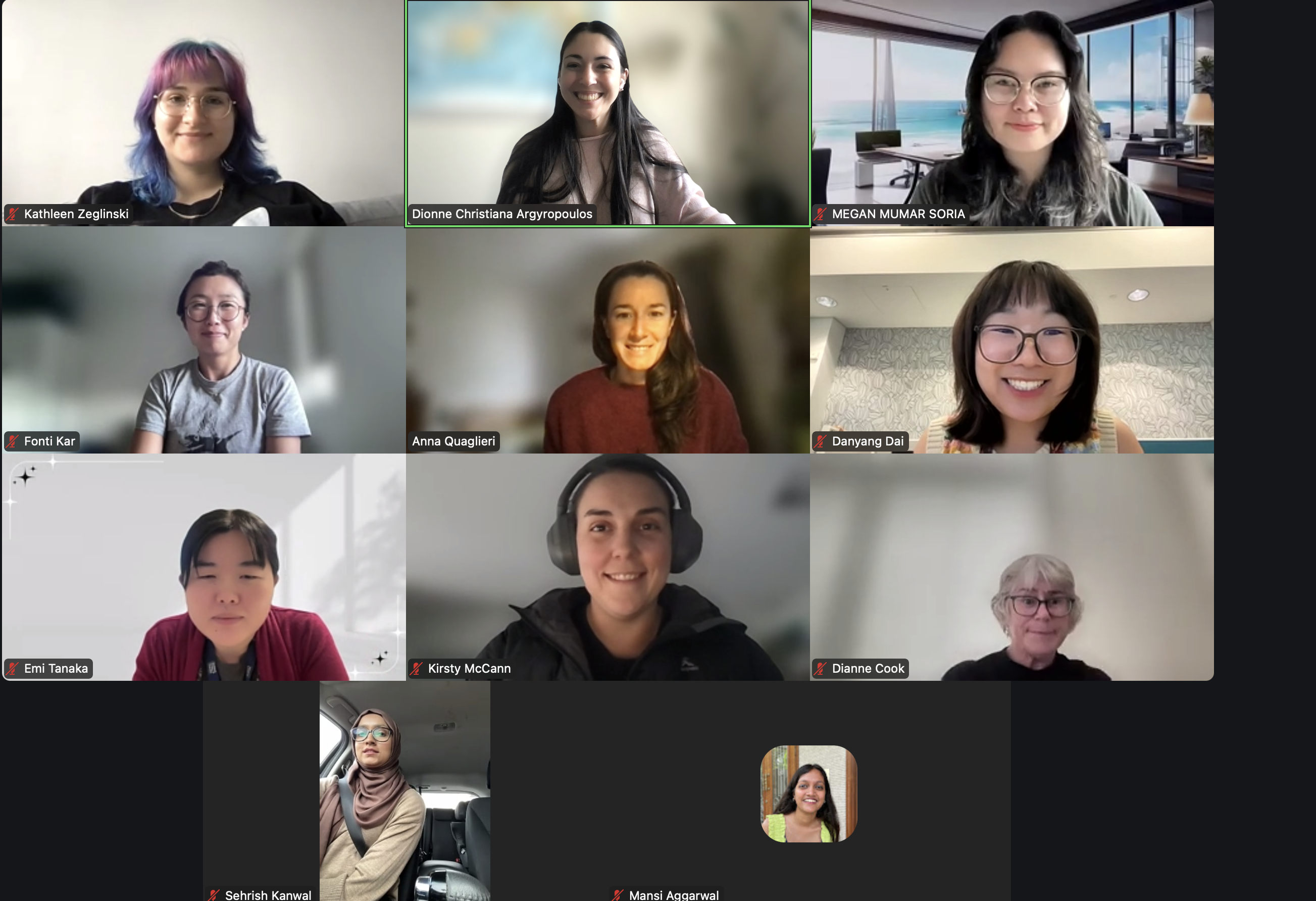
Meetups Hosted:
- Cross-chapter TidyTuesday with R-Ladies.
- Creating simple websites with Quarto + GitHub Pages
- Using Git for Version Control and Collaboration
- R-Ladies Social Night
- Plot Twist - Bringing Your ggplot2 Visuals to Life with ggplotly
- It Takes a Spark 2025 - Become A Disease Detective
- R-Ladies & SSA Melbourne Social Night: Happy 9th Birthday R-Ladies
- R-Ladies at R Dev Days with Dr Heather Turner
- End-of-Year Networking Event
Committee Members:
- Dionne Argyropoulos (President)
- Danyang Dai (Daidai) (Vice President)
- Sehrish Kanwal (Secretary)
- Kathleen Zeglinski (Treasurer)
- Caitlin Bourke
- Lauren Smith
- Belen Prado
- Cecilia Rios Teran
- Felicia Bongiovanni
- Harriet Mason
- Kirsty McCann
- Mansi Aggarwal
- Megan Soria
2024-25
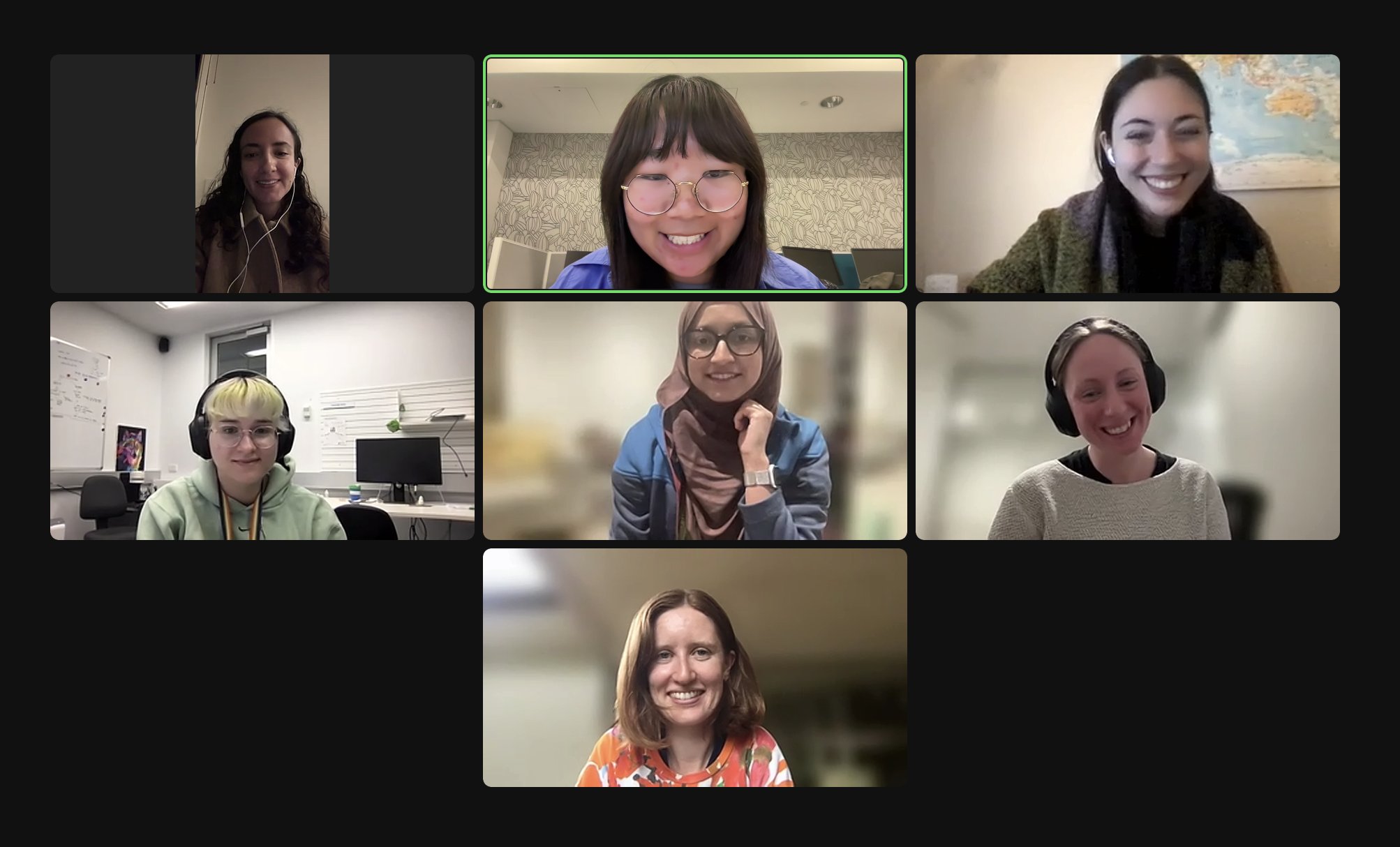
Meetups Hosted:
- Increasing diversity in R-Ladies São Paulo.
- It Takes a Spark 2024: Become a Disease Detective.
- Data in Sport Analytics.
- End of Year Networking Event
- Inspiring the Next Generation: R-Ladies Melb at “It Takes A Spark” Conference
- PGEforge: towards an open analysis ecosystem for malaria genomic epidemiology
Committee Members:
- Dionne Argyropoulos (President)
- Danyang Dai (Daidai) (Vice President)
- Sehrish Kanwal (Secretary)
- Kathleen Zeglinski (Treasurer)
- Caitlin Bourke
- Lauren Smith
- Belen Prado
- Cecilia Rios Teran
- Felicia Bongiovanni
- Harriet Mason (2025)
- Kirsty McCann (2025)
- Mansi Aggarwal (2025)
- Megan Soria (2025)
- Outgoing Members: Steph Studniberg, Jayani Lakshika
2023-24
Committee Members:
- Danyang Dai (Daidai) (President)
- Dionne Argyropoulos (Vice President)
- Sehrish Kanwal (Secretary)
- Kathleen Zeglinski (Treasurer)
- Caitlin Bourke
- Belen Prado
- Cecilia Rios Teran
- Steph Studniberg
- Jayani Lakshika
- Outgoing Members: Nikki Rubinstein, Gizem (Evie) Eker, Anna Quaglieri, Yuri Song
2022-23
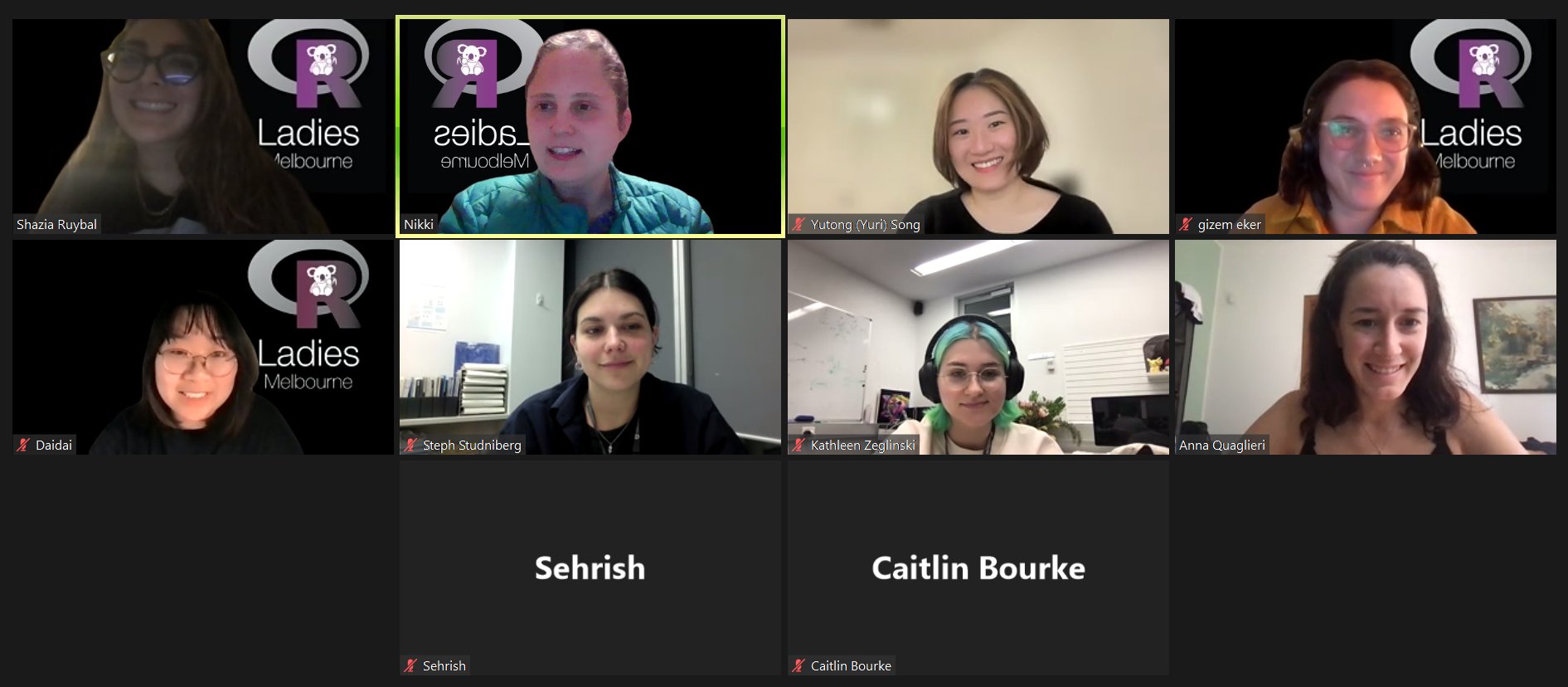
Meetups Hosted:
- Building a new geom in ggplot2.
- Data viz for mass audiences.
- The workflow of tidy data, constructing plots and making data driven decisions.
- Switching between space and time - Spatiotemporal analysis with cubble.
- How I use workflowr to create reproducible analyses.
- Choose your own adventure - Tools for Open and Reproducible Research.
- Navigating Public Health Careers Insights into Career Journeys.
Committee Members:
- Gizem (Evie) Eker (President)
- Danyang Dai (Daidai) (Vice President)
- Sehrish Kanwal (Secretary)
- Nikki Rubinstein (Treasurer)
- Yuri Song
- Anna Quaglieri
- Caitlin Bourke
- Kathleen Zeglinski
- Steph Studniberg
- Outgoing Members: Shazia Ruybal-Pesántez, Alexandra Garnham, Sepideh Foroutan
2021-22
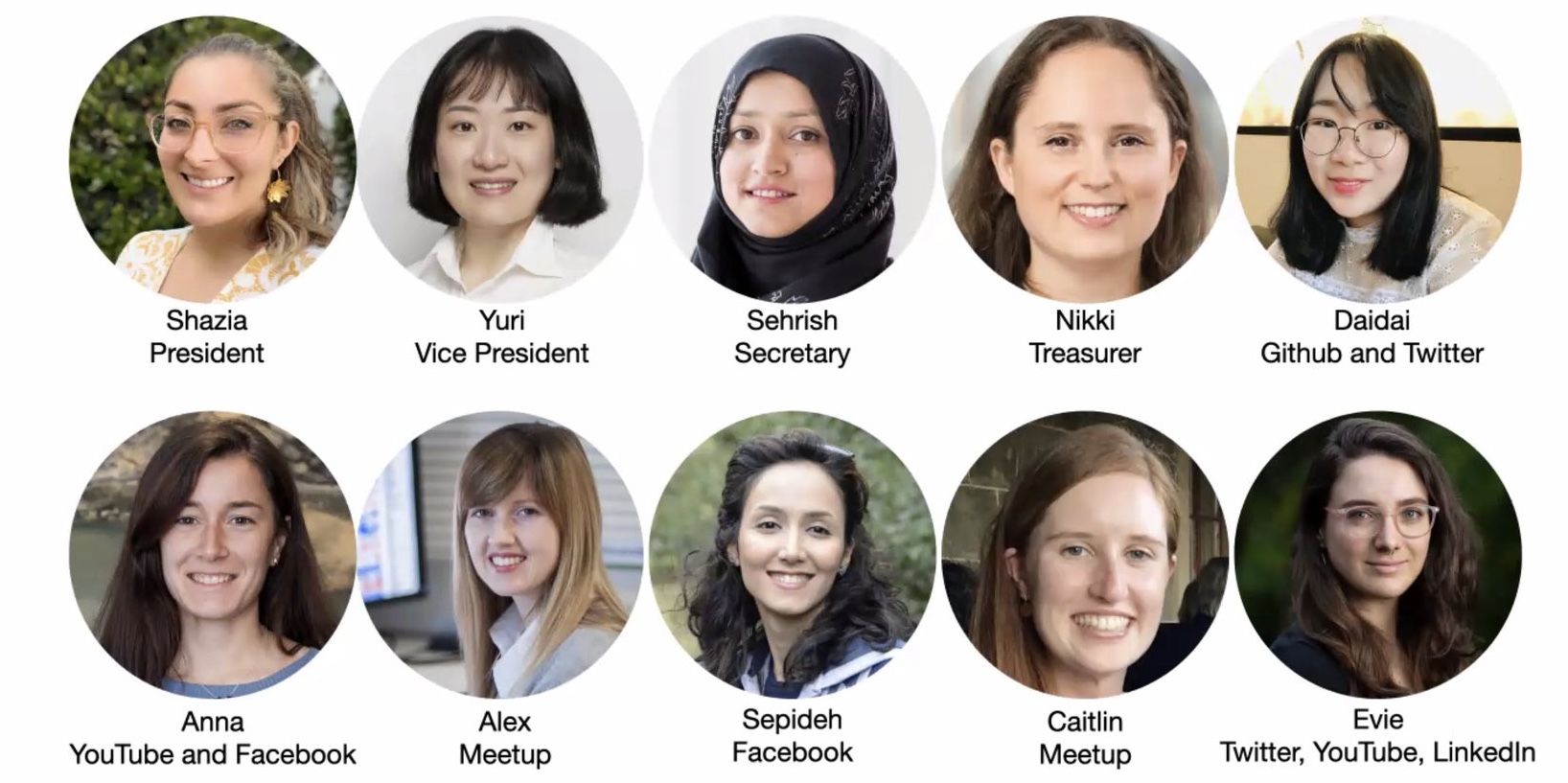
Meetups Hosted:
- Create and publish your pesronal website with Blogdown.
- A remove glimpse into the useR!2021 conference.
- Anomalies! You can’t escape them.
- The Art of Design - Software and Experimental Design.
- Automate your CV with R Markdown - Easy as 1, 2, knit.
- AI Ethics Workshop.
- How to do analysis for others without going crazy - My mistakes in consulting.
Committee Members:
- Shazia Ruybal-Pesántez (President)
- Yuri Song (Vice President)
- Sehrish Kanwal (Secretary)
- Nikki Rubinstein (Treasurer)
- Danyang Dai (Daidai)
- Anna Quaglieri
- Alexandra Garnham
- Sepideh Foroutan
- Caitlin Bourke
- Gizem (Evie) Eker
- Outgoing Members: Marie Trussart, Adele Barugahare, Miriam Yeung, Shanmathi Ramasubbu, Göknur Giner
2020-21
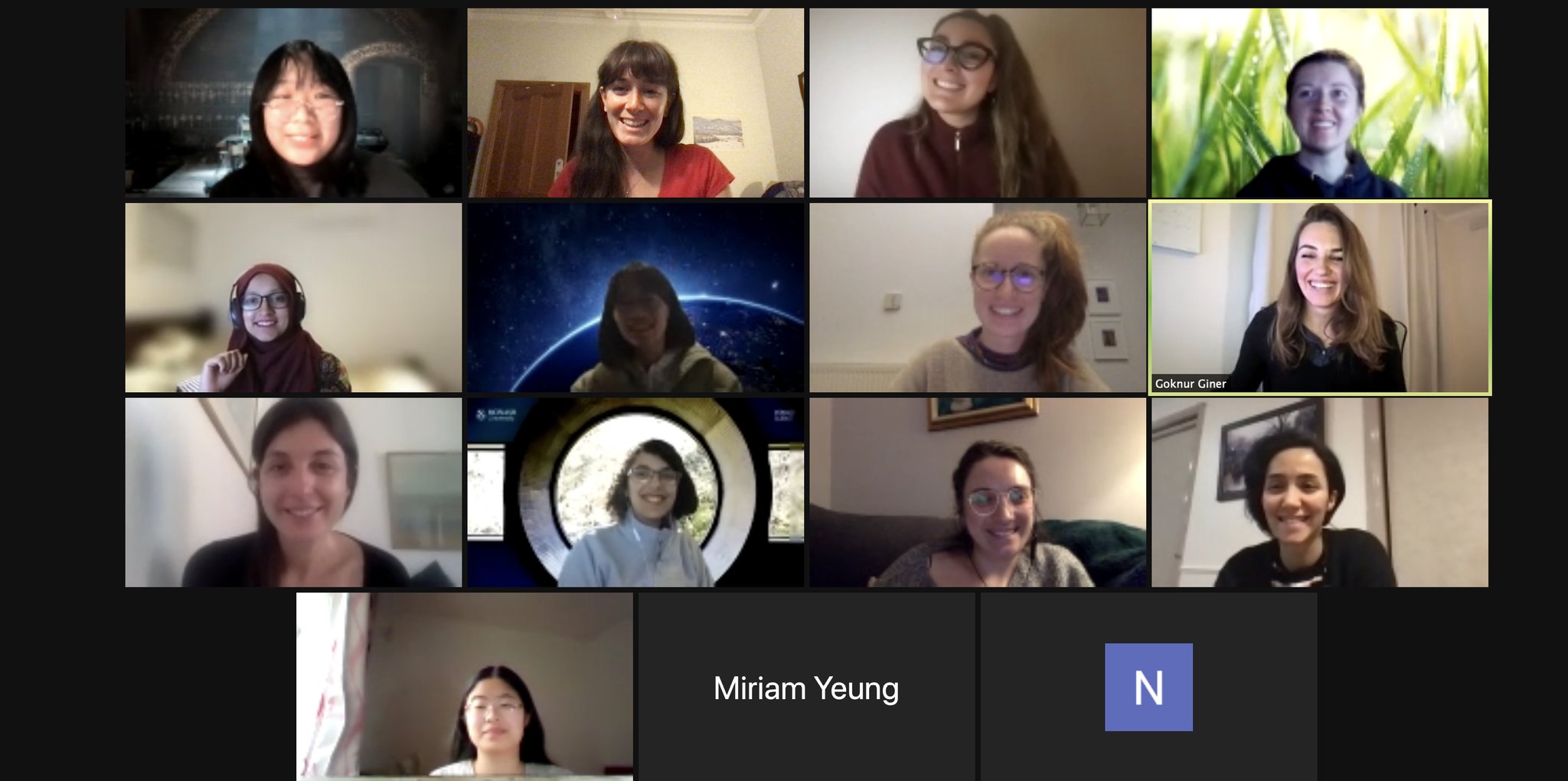
Meetups Hosted:
- Recent work in cluster trials and the representation of women in statistics.
- Would you like to become a more confident and engaging speaker?.
- R Markdown - A better way of communicating with data.
- Sport, Data, and R.
- Resume Guru.
- How R you? 4-year Anniversary.
- TidyTuesday.
- rstudio::global(2021) %>% filter(workshops==“diversity scholars”) %>% summarise().
Committee Members:
- Sehrish Kanwal (President)
- Marie Trussart (Vice President)
- Shazia Ruybal-Pesántez (Secretary)
- Adele Barugahare (Treasurer)
- Alexandra Garnham
- Danyang Dai (Daidai)
- Miriam Yeung
- Shanmathi Ramasubbu
- Yuri Song
- Anna Quaglieri
- Nikki Rubinstein
- Göknur Giner
- Sepideh Foroutan
- Stephanie Koo
- Ming Kong
2019-20

Meetups Hosted:
- Baby one more time - reproducibility in R and when to bring in the big guns.
- NLP with SpaCy in R.
- Cluster analysis with international education data.
- Introduction to R Workshop.
- Gold star reproducibility - straightforward containerisation.
- Take a sad plot and make it better.
- Intro to Data Analysis and Graphics with R.
- R-Shiny Tricks or Treats, Maybe Both?.
- Designing Data Science.
- Christmas Networking Party.
- TidyTuesday.
- Binovisualfields Package - Development and Publication to CRAN.
Committee Members:
- Sepideh Foroutan (President)
- Nikki Rubinstein (Vice President)
- Marie Trussart (Vice President)
- Göknur Giner (Secretary)
- Lucy Liu (Secretary)
- Adele Barugahare (Treasurer)
- Shazia Ruybal-Pesántez
- Saskia Freytag
- Alexandra Garnham
- Anna Quaglieri
- Miriam Yeung
- Shanmathi Ramasubbu
- Outgoing Members: Roxane Legaie, Sooror Zadeh
2018-19
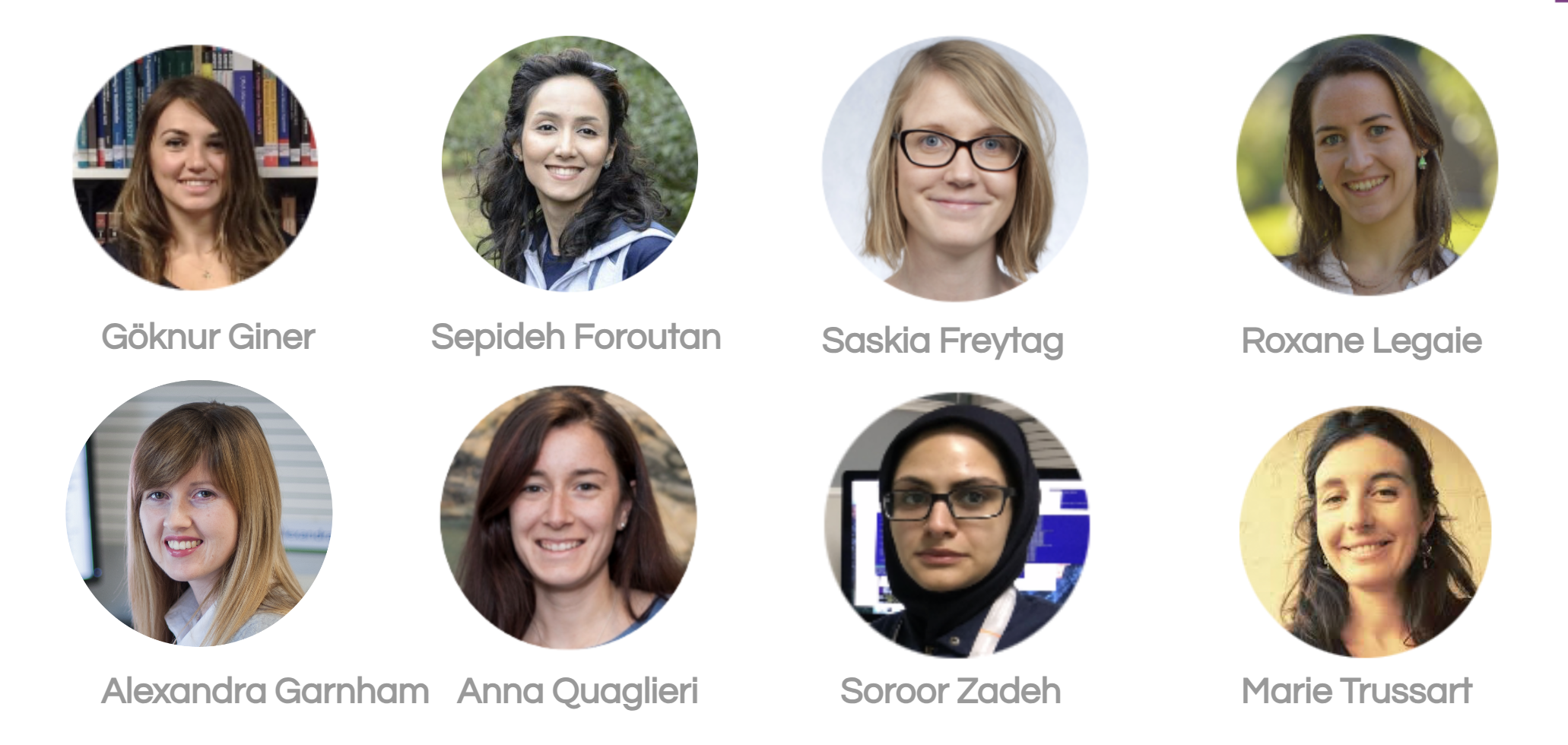
Meetups Hosted:
- Introduction to R
- Follow me! Introduction to social media analysis in R
- Getting down and up with blogging with R!
- R as a tool for complex systems modelling
- How R you? R-Ladies Melbourne second anniversary
- From zero to science hero in 1 week
- Semiparametric and non parametric models in R
- Producing publication-ready documents in R Markdown.
Committee Members:
- Göknur Giner
- Sepideh Foroutan
- Saskia Freytag
- Roxane Legaie
- Alexandra Garnham
- Anna Quaglieri
- Sooror Zadeh
- Marie Trussart
- Nikki Rubinstein
- Adele Barugahare
- Lucy Liu
2017-18
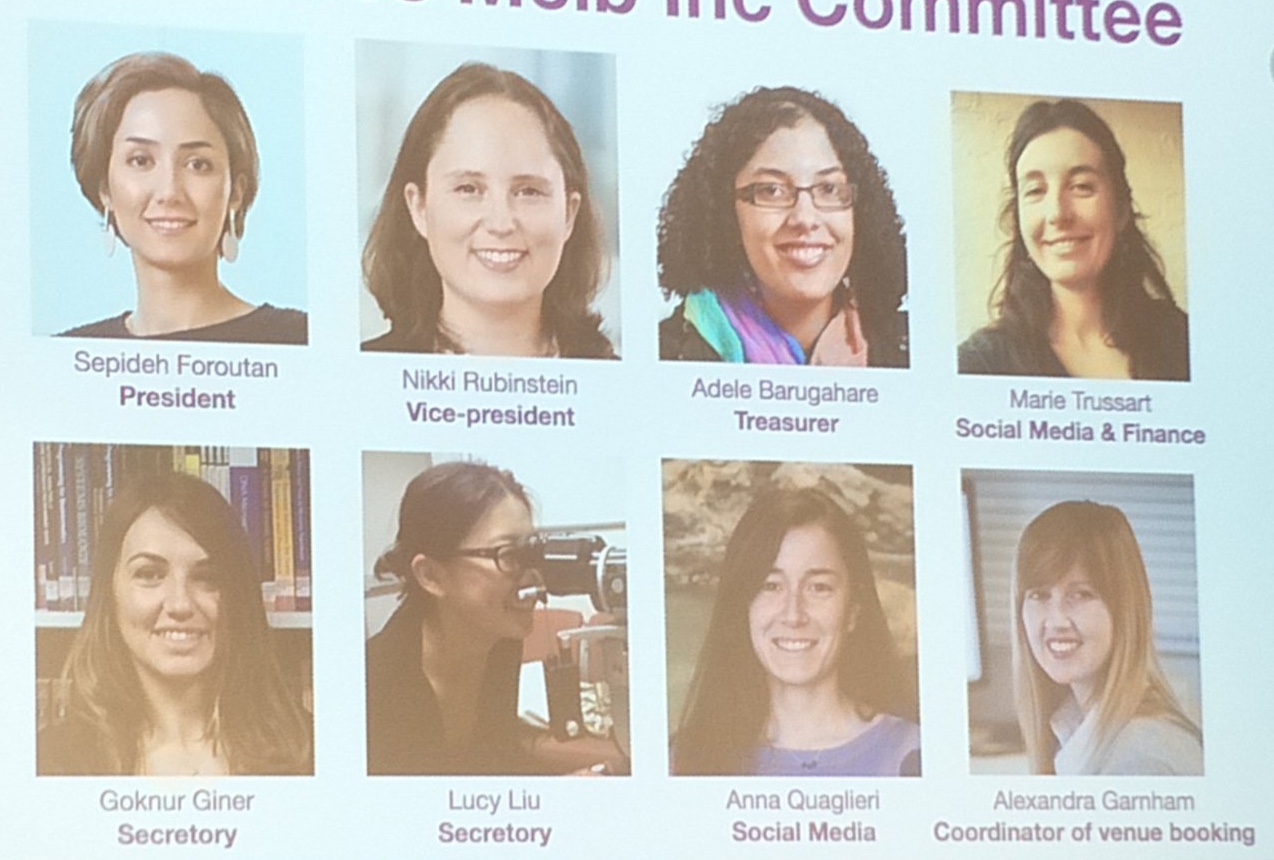
Meetups Hosted:
- Twitter Workshop
- Web Scraping and Sports Analytics
- Build Neural Network with R
- mixOmics Combine Large Scale Datasets
- Introduction to R Workshop
- Random Forest, Climate Change and Food Production
- One Year of R-Ladies Melbourne
- Introduction to R-Shiny
- Christmas Party
- Public Transport Maps and Geospatial Data in R
- Parallel Programming in R
- More than words - Text analysis in R
- Everything you need to know to create your R package!
Committee Members:
- Sepideh Foroutan (President)
- Nikki Rubinstein (Vice President)
- Göknur Giner
- Saskia Freytag
- Roxane Legaie
- Alexandra Garnham
- Anna Quaglieri
- Sooror Zadeh
- Marie Trussart
2016-17
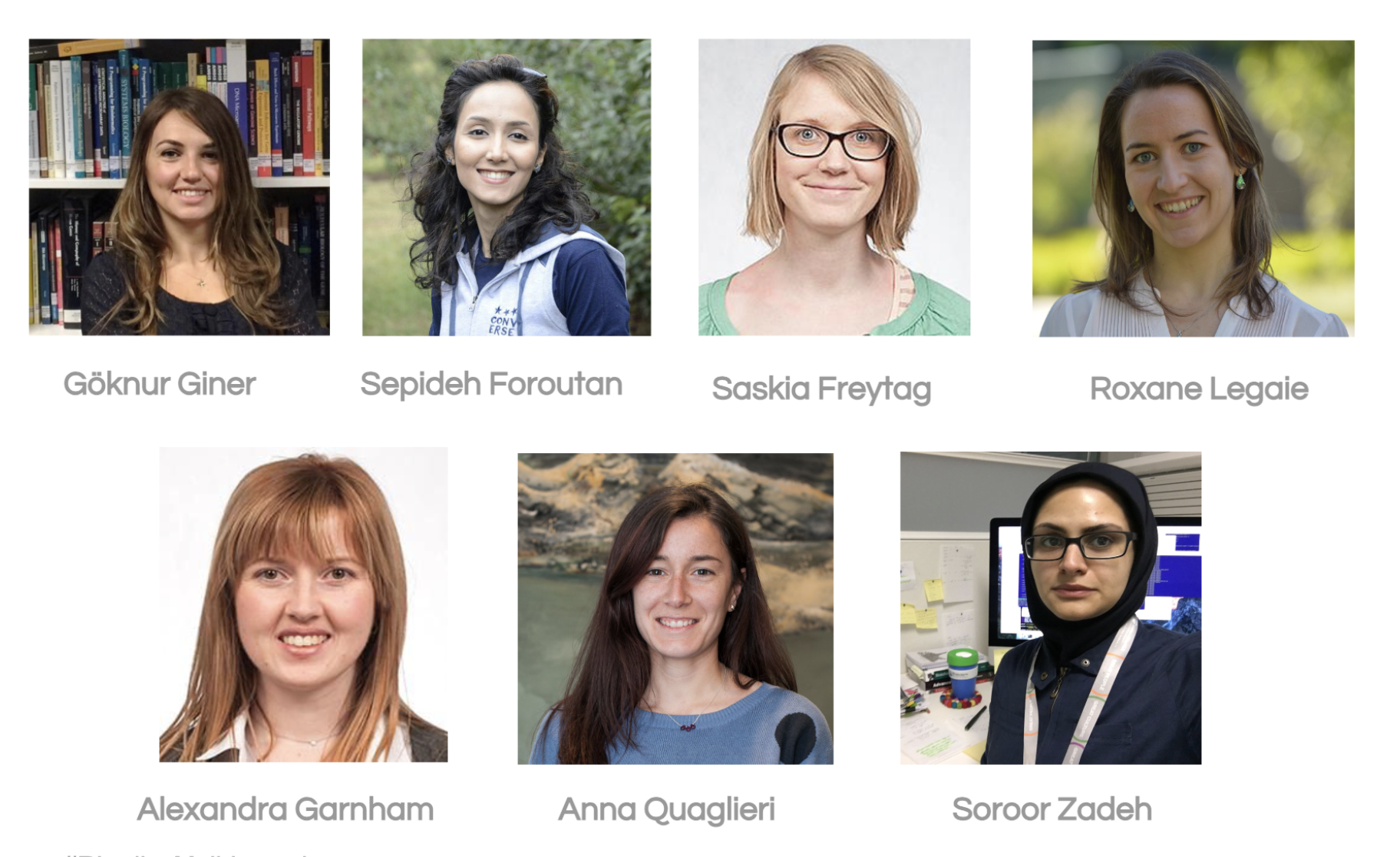
Meetups Hosted:
Committee Members:
- Göknur Giner
- Sepideh Foroutan
- Saskia Freytag
- Roxane Legaie
- Alexandra Garnham
- Anna Quaglieri
- Sooror Zadeh
Committee Member Profiles
R-Ladies Melbourne Organising Committee and Friends past and present in alphabetical order.
Mansi AGGARWAL
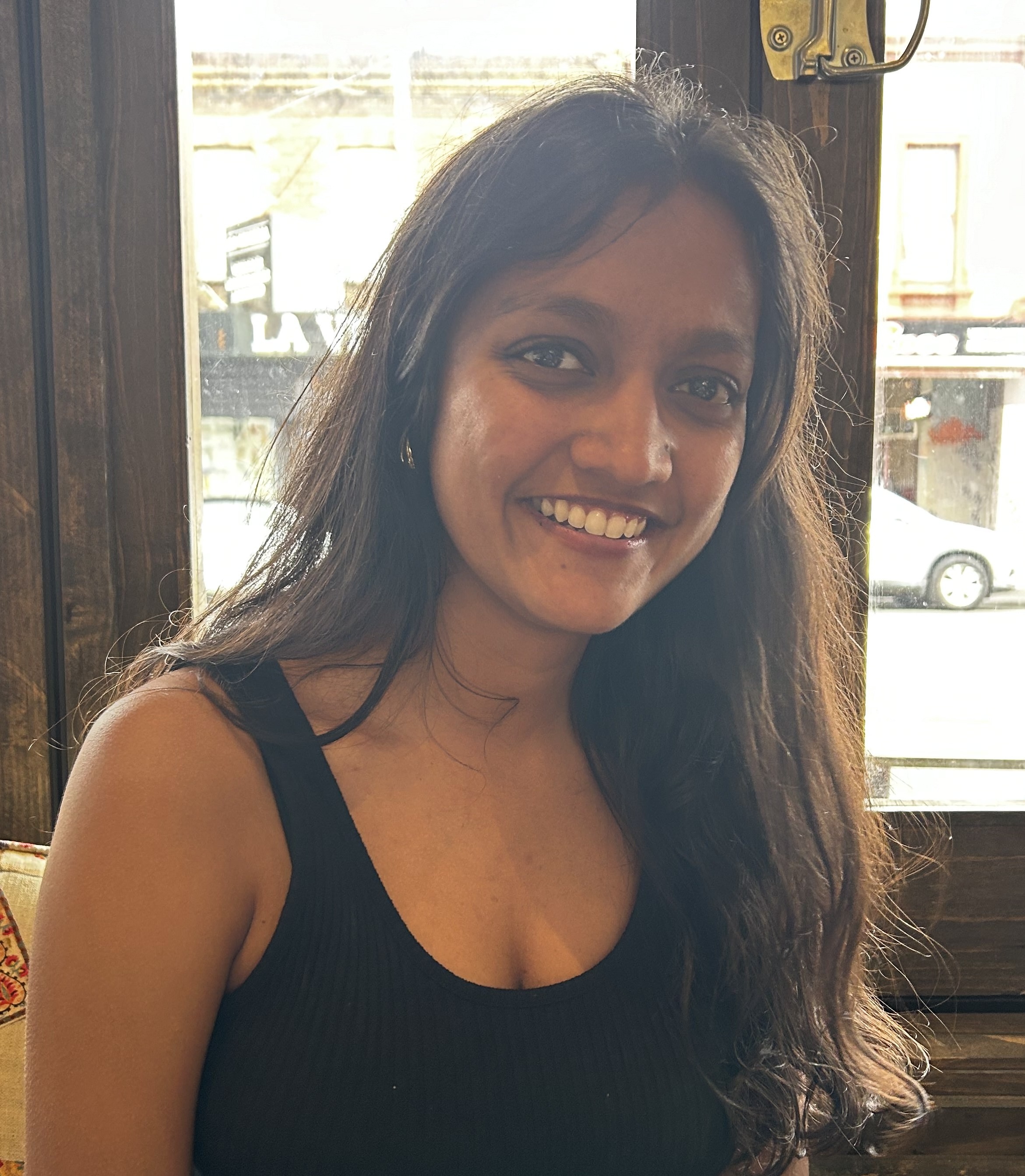
Current Position: Product Bioinformatician at Mass Dynamics
LinkedIn
What do you use R for? Bioinformatics, data visualisation, data processing
Favourite R packages: dplyr, ggplot
Biography: With over five years of experience in data science roles across diverse sectors, Mansi is now focused on leveraging her expertise at the intersection of healthcare and technology, particularly in bioinformatics. She is passionate about improving healthcare outcomes through data-driven solutions. Currently, she works as a product-focused bioinformatician at Mass Dynamics, developing innovative solutions to simplify proteomics workflows and data interpretation.
Dionne ARGYROPOULOS
What do you use R for? I use R for data processing, modelling, analysis, visualisation, reports and generating websites.
Favourite R packages: tidyverse, poppr
Biography: Dionne is a molecular epidemiologist and population geneticist currently positioned at WEHI (Walter and Eliza Hall Institute). Dionne’s avid interest in genetics, evolution and coding led her to apply these approaches to studies of infectious diseases, such as Plasmodium falciparum malaria in her Masters of Science and PhD, to P. vivax malaria and various microbes in her current first post-doc position. The research topics of interest include drug or antimicrobial resistance, spatiotemporal trends, epidemiological statistics, statistical modelling and machine learning techniques, data wrangling and visualisation. Her work has involved international collaborations in West Africa and North America, as well as supervision and support of students, with various opportunities for knowledge exchange and capacity-building in coding and genetic epidemiology. Being an active member of the R-Ladies Melbourne community, and the current President, has led to the development of practical content (workshops and the website) and has motivated her to learn and develop new techniques.
Caitlin BOURKE
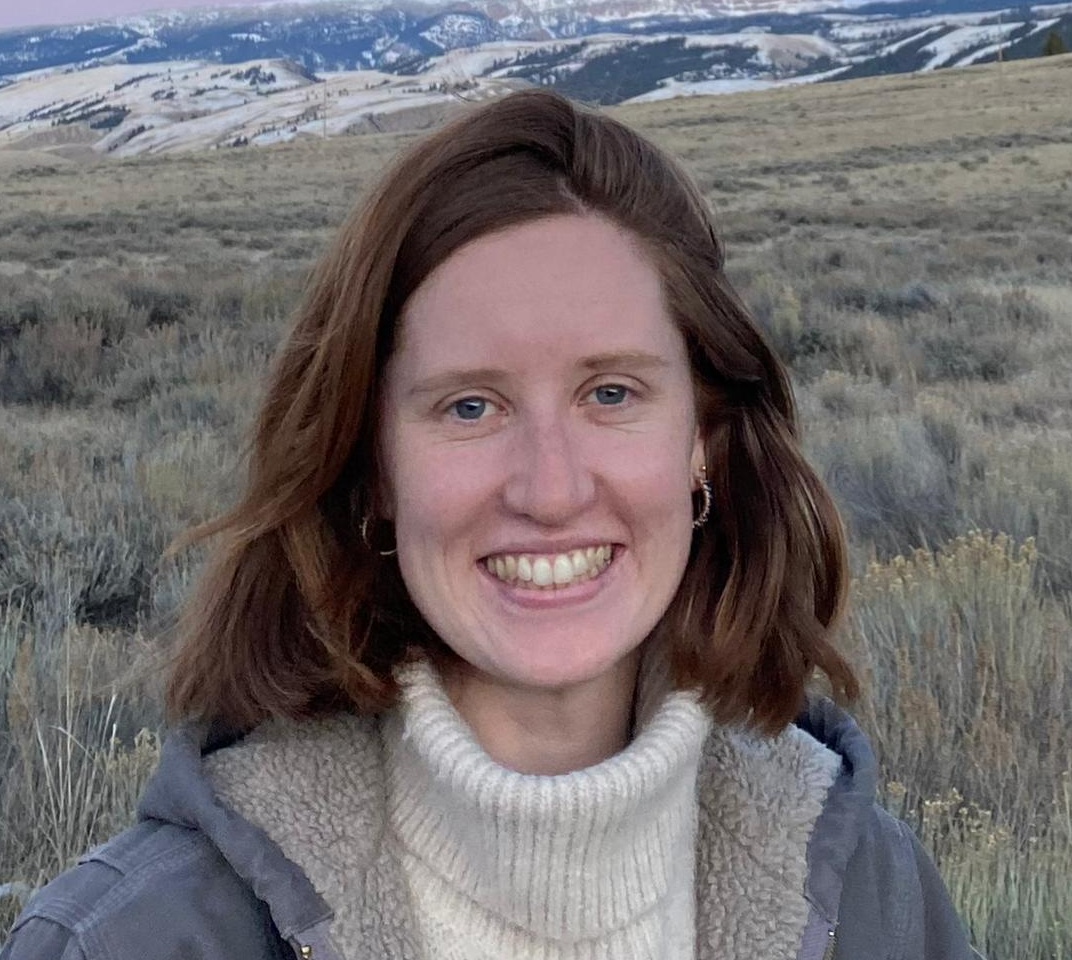
Current Position: Post-doctoral Researcher
What do you use R for? Bioinformatics, data analysis, data visualisation, reporting.
Favourite R packages: tidyverse
Biography: Caitlin is a post-doctoral researcher working in malaria research, currently based in Madagascar. Her work has spanned transcriptomics, genomics, immunology, and epidemiology.
Danyang (Daidai) DAI
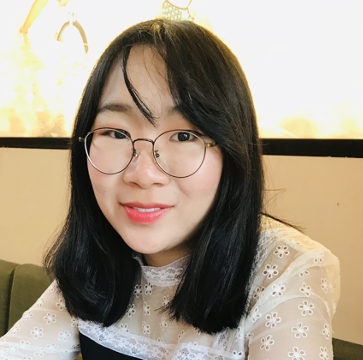
Current Position: PhD Student at Queensland Digital Health Centre, The University of Queensland
Bluesky
Github
LinkedIn
What do you use R for? Data wrangling, analysis, visualisation. Generating reproduceable report, Shiny app and website development.
Favourite R packages: tidyverse, rmarkdown
Biography: Danyang Dai (Daidai) is a third-year PhD candidate at the Queensland Digital Health Centre (QDHeC) at The University of Queensland. Her research focuses on advancing population health outcomes in the post-COVID-19 era. With a strong academic background in Econometrics and Biostatistics, Daidai is also a passionate advocate for the R programming language. She has actively contributed to the academic and professional communities through her involvement with organizations such as R-Ladies Melbourne and by creating educational resources for R programming.
Saskia FREYTAG
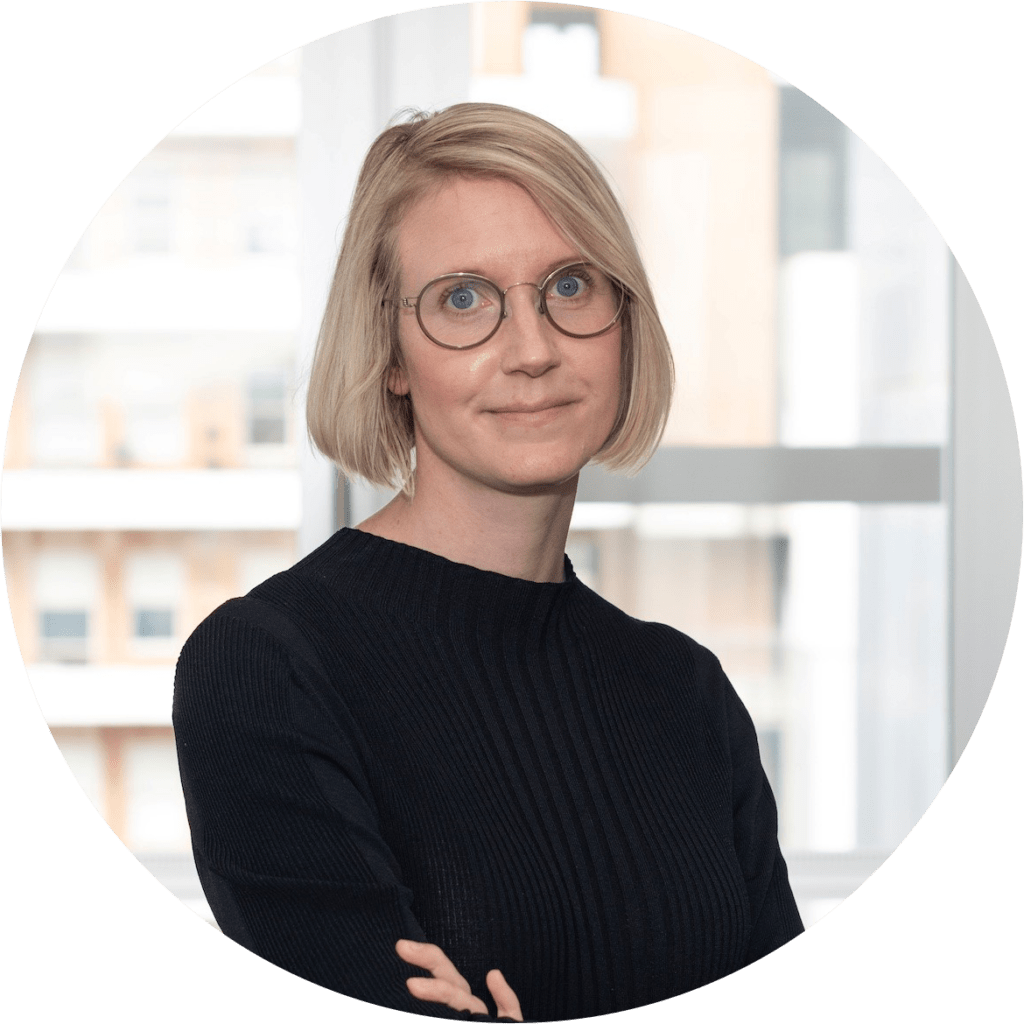
Current Position: Lab Head
Bluesky
What do you use R for? Bioinformatics.
Favourite R packages: ggplot
Biography: Saskia Freytag is a laboratory head in the Personalised Oncology Division at Walter and Eliza Hall Institute for Medical Research. Together with Dr Sarah Best and Dr Jim Whittle, Saskia co-leads the Brain Cancer Research Laboratory within the Brain Cancer Centre, where she leads the Bioinformatics arm. Her group uses cutting-edge single cell and spatial omics technologies to improve surgical methods, understand resistance mechanisms, and identify novel treatment strategies.
Saskia has a PhD in Statistical Genetics from Georg-August University in Göttingen (Germany), followed by postdoctoral positions at WEHI and the Harry Perkins Institute of Medical Research in Perth. Saskia was one of the original founding members of R Ladies Melbourne.
Sehrish KANWAL
What do you use R for? Data analysis, reporting, visualisation
Favourite R packages: ggplot
Biography: Dr. Sehrish Kanwal is a senior bioinformatician at the University of Melbourne Centre for Cancer Research, specialising in cancer genomics and clinical data analysis. Dr. Kanwal’s research interests primarily revolve around cancer discovery, prognosis, and treatment, with a focus on leveraging computational biology and genomic and transcriptomic data analysis in clinical settings.
Beyond her scientific work, she is a passionate advocate for gender equity and empowering women in STEM fields. Dr. Kanwal has been a driving force behind R-Ladies Melbourne, promoting inclusivity, support, and mentorship within the R community. She is a dedicated mentor and a teacher, who believes in empowering and supporting students and junior researchers. Her commitment to open science, reproducibility, and advancing bioinformatics research led to her innovative project proposal being selected for the prestigious rOpenSci Champions Program in 2024. Furthermore, Dr. Kanwal has been instrumental in curriculum development and maintenance, ensuring that bioinformatics education aligns with the latest advancements in the field. Her engagement with international organisations, such as the Carpentries, highlights her commitment to providing expert education advice and promoting knowledge exchange.
Overall, Dr. Sehrish Kanwal’s multidimensional contributions encompass research excellence, leadership in bioinformatics analysis, teaching and training, and mentoring future professionals. Her work holds significant potential for advancing cancer research, improving clinical outcomes, and fostering the growth of bioinformatics education and expertise.
Roxane LEGAIE
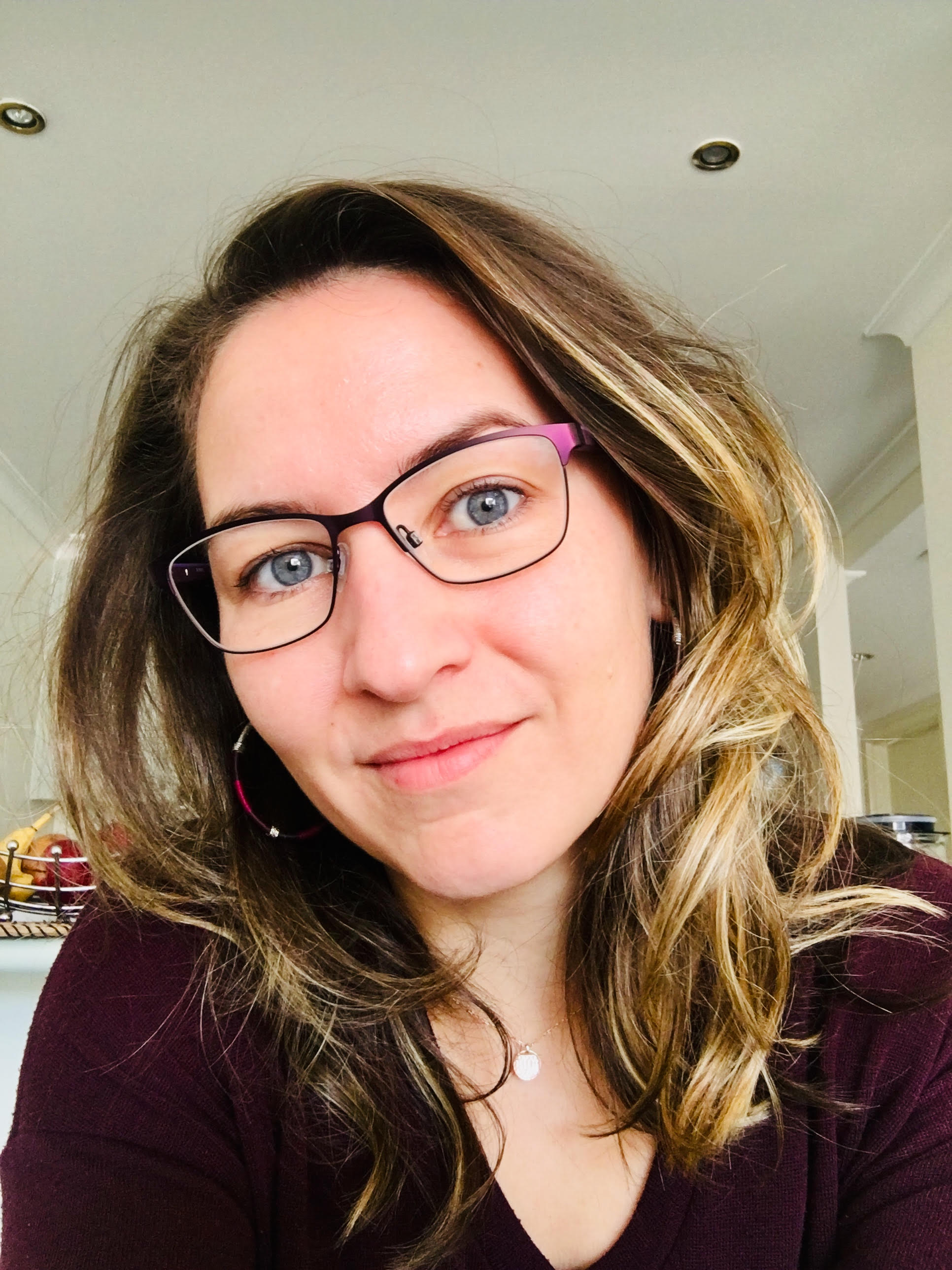
Current Position: Clinical Bioinformatics Team Leader at the Peter MacCallum Cancer Centre
LinkedIn
What do you use R for? I don’t code much anymore but some of our application use R for Copy Number Variation calling and visualisation from cancer genomics data.
Biography: Roxane leads the Clinical Bioinformatics team for the Pathology Department at the Peter MacCallum Cancer Centre in Melbourne. Her work is at the cutting edge of cancer genomics, implementing translational informatics solutions required for the analysis of next generation sequencing (NGS) data into clinical practice, to accelerate the diagnosis of cancer patients and their access to clinical trials.
Her passion for personalised medicine drives her commitment to ensure best practices are used throughout development, validation and release of clinical bioinformatics pipelines.
Roxane completed a Master of Science (“Informatics and Bioinformatics”) in France in 2007 and has worked in various institutions across Europe and Australia since – both in academia, industry and health care. She was one of the co-founders of R-Ladies Melbourne back in 2016.
Lucy LIU
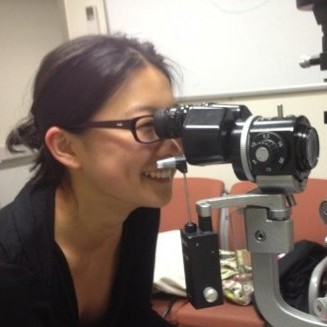
Current Position: Software Engineer at Quansight Labs
LinkedIn
What do you use R for? I mostly work in Python these days but I do use R to check how various statistical functions are implemented, in particular in my work on scikit-learn. R is a statistical programming language and I think it’s still a gold standard for implementation of statistical algorithms.
Favourite R packages: edgeR
Biography: I’m currently a software engineer working on open source scientific software. I got my start doing some bioinformatics during my research Masters and have really enjoyed developing software to help scientists!
Shazia RUYBAL-PESÁNTEZ
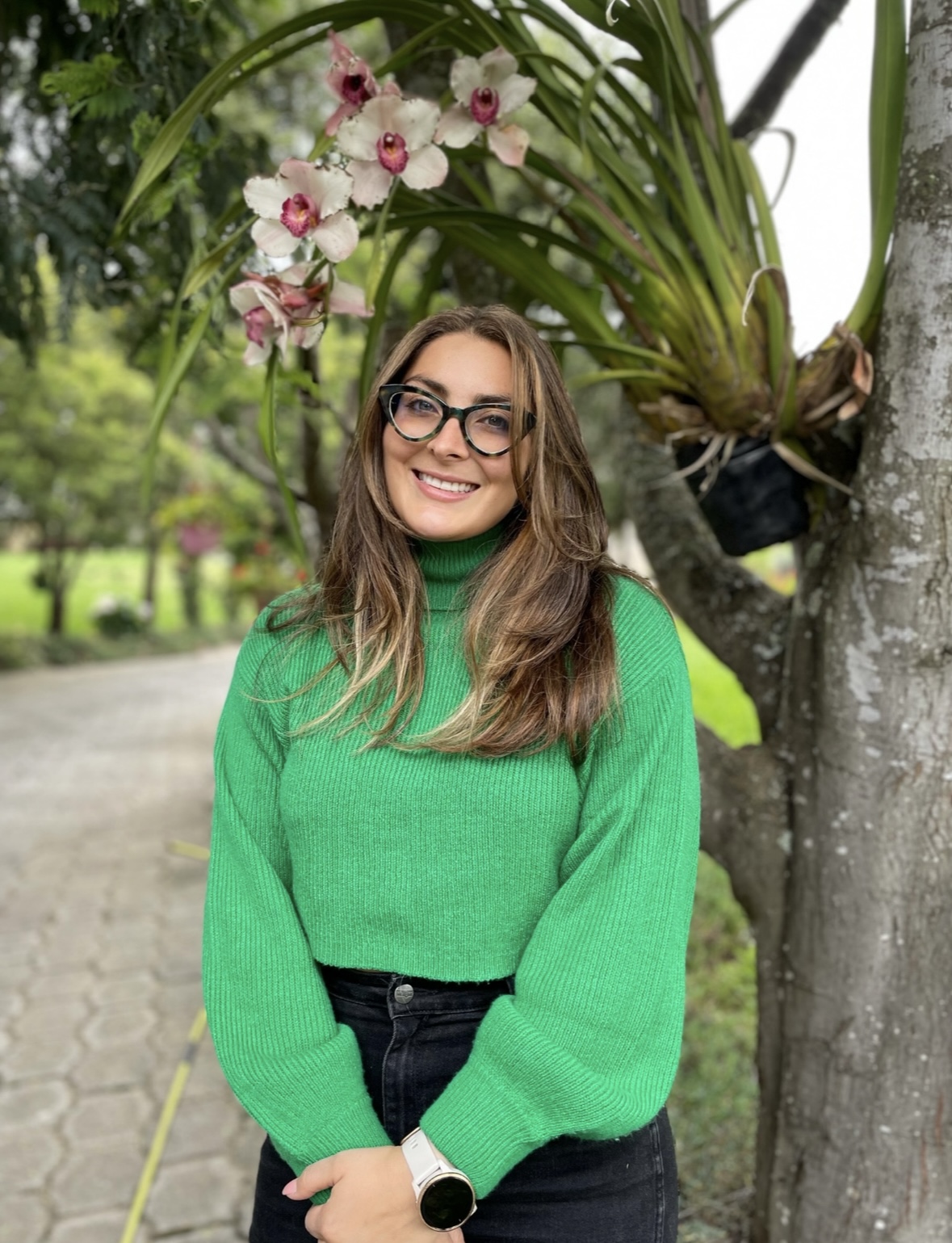
Current Position: Research Associate in Malaria Genomic Epidemiology, Imperial College London
Bluesky
Github
LinkedIn
What do you use R for? Pretty much everything! From data cleaning to modeling, to R packages and shiny apps, to websites!
Favourite R packages: rmarkdown, tidyverse, gt
Biography: Dr Shazia Ruybal-Pesántez is a genomic epidemiologist specializing in pathogen genomic epidemiology and its applications in malaria surveillance. Her research integrates population genetics, bioinformatics, and epidemiology to design analytical and statistical methods that enhance our understanding of malaria transmission dynamics. She is particularly interested in leveraging genomic data to optimize malaria surveillance strategies in response to emerging challenges such as increased localized outbreaks, drug resistance, and climate change. Through her work she aims to bridge the gap between data generation, analysis and real-world impact.
She is also an avid R user (she is a former R-Ladies Melbourne president!) and is passionate about open science, training and capacity-building, and the development of accessible digital tools. She is also a consultant and instructor for Applied Epi, where she teaches applied epidemiologists and public health professionals to apply epidemiological methods using R.
Lauren SMITH
What do you use R for? Statistical modelling, mathematical modelling, machine learning, data processing
Favourite R packages: Anything tidy modelling!
Biography: Lauren is a Senior Postdoctoral Research Officer in the Mueller Lab, in the Population Health and Immunity Division at the Walter and Eliza Hall Institute. Lauren currently works on projects relating to the control of infectious diseases in the Asia-Pacific region, including the development of diagnostic tools to identify individuals recently infected with Plasmodium vivax. In her previous research, she has addressed questions related to the management of animal populations and infectious diseases, including assessing the effectiveness of free-roaming dog population management, rabies control strategies, African swine fever in domestic pigs, and cetacean ecology and conservation. She uses R for all the above, from data cleaning to ecological and infectious disease modelling!
Anna QUAGLIERI
What do you use R for? Building R packages and methods for the Mass Dynamics platform and analysing data for our clients.
Favourite R packages: Hard to answer! But limma is definitely at the top
Biography: Dr. Anna Quaglieri is a Senior Bioinformatics Data Scientist at Mass Dynamics working to make mass spectrometry based proteomics more accessible to the broader community of scientists. She has a background in mathematical statistics and over 10 years of experience utilising statistics and software to makes sense of various types of ’omics data including population genetics, genomics, epigenetics and proteomics in both academia and industry.
Anna is a passionate advocate of the bioinformatics open source software community having co-organised the R-Ladies Melbourne group for over 6 years and currently covering the role of chair for the Bioconductor Code of Conduct committee.
Marie TRUSSART
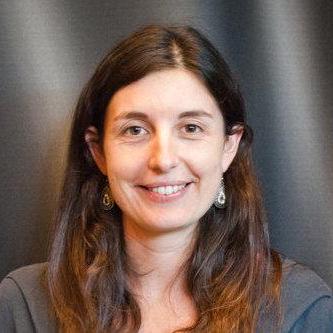
Current Position: Senior Post-doctoral Researcher
LinkedIn
What do you use R for? Data analysis, Computational biology, Statistics.
Favourite R packages: CytofRUV
Biography: I am a senior post-doctoral researcher in the Bioinformatics department at the Walter and Eliza Hall Institute of Medical Research in Melbourne. I analyze clinical data from cancer patients receiving different drugs and develop computational methods to better predict an adapted treatment for each patient.
I am particularly concerned by the low rate of female participation in STEM and STEM careers. I have participated through different organizations such as the RLadies as a vice-president, WISPP to organize development workshops and events to empower women scientists for successful leadership among STEM professions. I am also really enthusiastic about career coaching and founded Kintsugi Coaching to address the barriers and enablers behind the participation and leadership of women in science.
Kathleen ZEGLINSKI
What do you use R for? Bioinformatics, data visualisation and cleaning.
Favourite R packages: ggplot2
Biography: Kathleen is a final-year PhD student in the Ritchie Lab at WEHI. Her work focuses on the application of sequencing and bioinformatics to the development of biopharmaceuticals, including gene therapies and antibodies.
